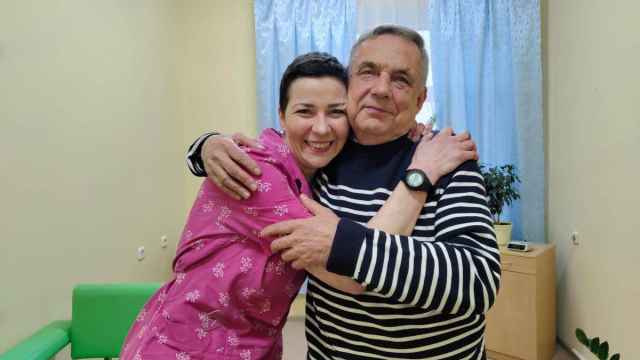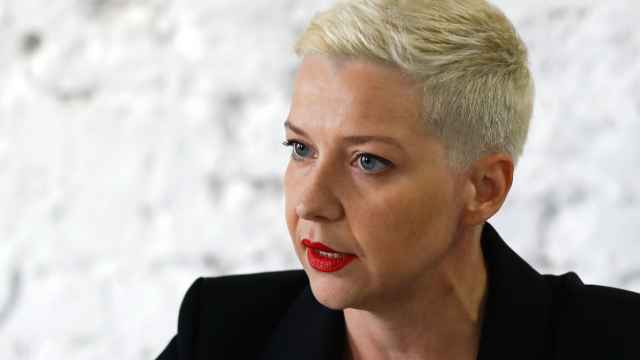A Belarusian activist who was extradited from Russia has been sentenced to 12 years in prison on multiple charges linked to protests against the re-election of Belarus’ strongman leader, a group of her supporters reported Tuesday.
Yana Pinchuk, who lived in Russia since 2018, was detained on Minsk’s request in the Russian city of St. Petersburg in November 2021. She was later extradited to Belarus in summer 2022.
Pinchuk faced up to 19 years in Belarusian prison on five criminal counts of creating a terrorist and extremist group, inciting social hatred, damaging national security and calling for violations of constitutional order.
The Minsk City Court found Pinchuk, 25, guilty of the charges and handed her a prison sentence of 12 years.
Belarusian authorities accused Pinchuk of running a channel on the Telegram messaging app, Vitebsk97%, which had criticized Belarusian President Alexander Lukashenko’s regime.
Belarus labeled Vitebsk97% an "extremist" organization amid the country's wider crackdown on protests after Lukashenko won a sixth term in a widely disputed election.
Pinchuk has rejected the charges and claimed that she shut down Vitebsk97% after it was blacklisted in compliance with the law.
Pinchuk’s supporters and fellow activists maintain that the charges against her were politically motivated.
Telegram is a popular social media platform in Russia and other former Soviet countries, both for private communication and for sharing information and news.
Most opposition activists fled Belarus following Lukashenko's brutal crackdown on protesters in 2020.
The Belarusian rights group Viasna states that there are almost 1,500 political prisoners in Belarus.
Lukashenko, who has been in power for nearly three decades, is a key ally of Russian President Vladimir Putin and allowed the Kremlin to launch its full-scale offensive in Ukraine from his territory.
A Message from The Moscow Times:
Dear readers,
We are facing unprecedented challenges. Russia's Prosecutor General's Office has designated The Moscow Times as an "undesirable" organization, criminalizing our work and putting our staff at risk of prosecution. This follows our earlier unjust labeling as a "foreign agent."
These actions are direct attempts to silence independent journalism in Russia. The authorities claim our work "discredits the decisions of the Russian leadership." We see things differently: we strive to provide accurate, unbiased reporting on Russia.
We, the journalists of The Moscow Times, refuse to be silenced. But to continue our work, we need your help.
Your support, no matter how small, makes a world of difference. If you can, please support us monthly starting from just $2. It's quick to set up, and every contribution makes a significant impact.
By supporting The Moscow Times, you're defending open, independent journalism in the face of repression. Thank you for standing with us.
Remind me later.






